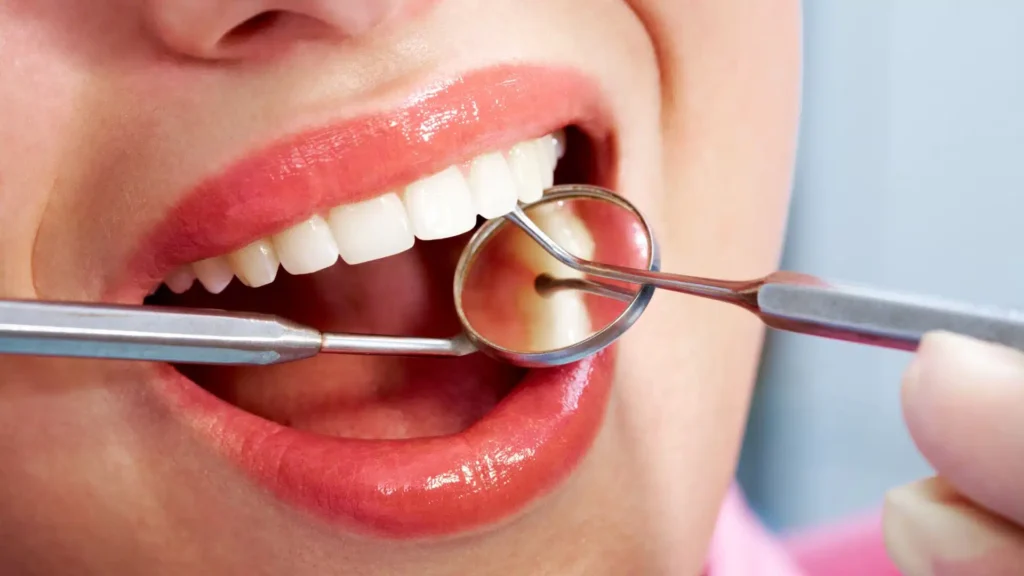
Dental health is an essential aspect of overall well-being. It impacts not only the aesthetics of our smile but also our ability to eat, speak, and maintain general health. Poor oral hygiene can lead to various dental issues, including cavities, gum disease, and even systemic health problems like heart disease and diabetes. In this article, we will explore the significance of dental health, common dental problems, preventive measures, and modern advancements in dentistry.
Understanding Dental Health
Dental health refers to the condition of the teeth, gums, and mouth. It is crucial for maintaining proper digestion, speech clarity, and self-confidence. Neglecting oral care can result in bacterial infections, tooth decay, and other serious conditions. The primary components of 植牙 health include:
- Teeth: These help in chewing food and contribute to facial aesthetics.
- Gums: Healthy gums support teeth and prevent infections.
- Saliva: Plays a vital role in breaking down food and protecting the teeth from bacteria.
- Tongue: Assists in digestion and speech while contributing to oral hygiene.
Common Dental Problems
Several dental issues affect millions of people worldwide. Some of the most common problems include:
1. Tooth Decay (Cavities)
Cavities are caused by plaque buildup, which leads to the erosion of tooth enamel. Bacteria in the mouth feed on sugar and produce acid, damaging the enamel and creating holes in the teeth. Symptoms include tooth sensitivity, pain, and visible holes.
2. Gum Disease (Periodontal Disease)
Gum disease occurs when plaque and tartar accumulate around the gumline, leading to inflammation and infection. It has two stages:
- Gingivitis: The early stage, characterized by swollen, bleeding gums.
- Periodontitis: The advanced stage, leading to gum recession and tooth loss.
3. Tooth Sensitivity
This condition occurs when the protective enamel wears down, exposing the dentin layer of the teeth. Hot, cold, sweet, or acidic foods and drinks may cause discomfort.
4. Bad Breath (Halitosis)
Persistent bad breath is often a sign of underlying dental issues such as gum disease, cavities, or dry mouth. Poor oral hygiene and certain foods can also contribute to halitosis.
5. Tooth Loss
Tooth loss can result from decay, gum disease, or trauma. Missing teeth can affect chewing, speech, and self-confidence. Dental implants, bridges, and dentures are common solutions.
6. Oral Cancer
Oral cancer affects the lips, tongue, cheeks, and throat. It is often linked to tobacco use, excessive alcohol consumption, and human papillomavirus (HPV) infection. Early detection is crucial for effective treatment.
Preventive Measures for Good Dental Health
Maintaining good dental hygiene can prevent most oral health issues. Here are some key preventive measures:
1. Brushing and Flossing
- Brush twice a day using fluoride toothpaste.
- Use a soft-bristled toothbrush to prevent enamel damage.
- Floss daily to remove plaque and food particles from between teeth.
2. Regular Dental Check-ups
Visiting the dentist every six months helps in early detection and treatment of potential issues. Professional cleanings remove plaque and tartar that brushing alone cannot eliminate.
3. Healthy Diet
- Limit sugary and acidic foods to prevent cavities.
- Consume calcium-rich foods like dairy products, leafy greens, and nuts for strong teeth.
- Drink plenty of water to maintain saliva production and wash away food particles.
4. Avoid Tobacco and Limit Alcohol
Smoking and chewing tobacco increase the risk of gum disease and oral cancer. Excessive alcohol consumption can also contribute to dry mouth and tooth decay.
5. Use Mouthwash
Antibacterial mouthwash can help reduce plaque, fight bad breath, and prevent gum disease. However, it should not replace brushing and flossing.
6. Wear Mouthguards
For individuals involved in contact sports, wearing a mouthguard helps prevent dental injuries. Similarly, people who grind their teeth at night may benefit from a night guard.
Modern Advancements in Dentistry
Dental technology has advanced significantly, making treatments more effective and comfortable. Some of the latest innovations include:
1. Laser Dentistry
Lasers are used for various dental procedures, including cavity treatment, gum reshaping, and teeth whitening. Laser dentistry minimizes pain, reduces bleeding, and speeds up healing.
2. Dental Implants
Implants are a permanent solution for missing teeth. A titanium post is surgically placed in the jawbone, and a crown is attached to restore functionality and aesthetics.
3. Invisalign and Clear Aligners
Traditional metal braces are being replaced by clear aligners, such as Invisalign, which straighten teeth without the discomfort of wires and brackets.
4. Teeth Whitening
Professional teeth whitening treatments use bleaching agents to remove stains and discoloration, providing a brighter smile.
5. Digital Dentistry
Advanced imaging techniques, such as 3D scanning and CAD/CAM technology, allow dentists to create precise restorations like crowns and bridges with greater accuracy.
6. Regenerative Dentistry
Researchers are working on regenerating damaged teeth and gums using stem cells and biomaterials. This field has the potential to revolutionize dental treatments.
The Connection Between Oral and Overall Health
Oral health is closely linked to general health. Poor dental hygiene can contribute to several systemic conditions, including:
1. Heart Disease
Gum disease has been linked to an increased risk of heart disease. Bacteria from infected gums can enter the bloodstream, leading to inflammation and artery damage.
2. Diabetes
People with diabetes are more susceptible to gum disease due to high blood sugar levels. Conversely, gum infections can make it harder to control blood sugar.
3. Respiratory Issues
Oral bacteria can be inhaled into the lungs, increasing the risk of pneumonia and other respiratory infections.
4. Pregnancy Complications
Gum disease during pregnancy has been associated with premature birth and low birth weight. Pregnant women should maintain good oral hygiene and visit the dentist regularly.
Conclusion
Dental health plays a crucial role in our overall well-being. By adopting good oral hygiene habits, maintaining a balanced diet, and visiting the dentist regularly, we can prevent common dental issues and ensure a healthy smile. With the advancements in modern dentistry, individuals now have access to better treatments and solutions for dental problems. Prioritizing dental health not only enhances our appearance but also contributes to a longer, healthier life.
Be First to Comment